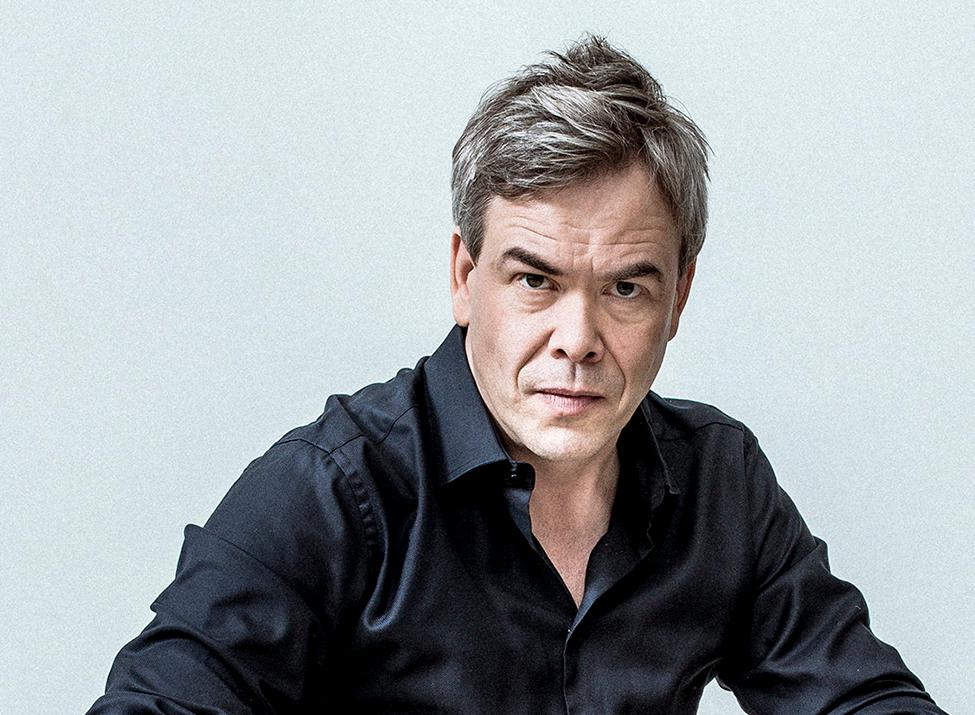
4 minute read
Penderecki: Sinfonietta for Strings
PROGRAMME NOTES
KRZYSZTOF PENDERECKI 1933–2020
SINFONIETTA NO. 1 FOR STRINGS1992
– APPROX 12 MINS –
1 ALLEGRO MOLTO
2 VIVACE
Kryzsztof Penderecki was born in Dębica, a small town between Kraków and L’vov, and studied at Kraków’s Academy of Music and Jagiellonian University. He first established himself at the Warsaw Autumn Festivals of 1959 and 1960. Quickly becoming part of the European avant-garde, he achieved fame with his Threnody for the Victims of Hiroshima, in which he imparted a keen expressivity to his then ‘sonorist’ musical language. The St Luke Passion proved how successful this idiom could be in sacred music and he continued to be inspired directly by such timeless religious themes, as is witnessed by his cantatas, oratorios and operas.
During the mid-1970s this involvement with tradition became deeper, Penderecki entering into dialogue with music that he ‘rediscovered’ for himself. He internalised the post-Romantic tradition and combined it with the technical achievements of his earlier music. Further formal and stylistic investigation led to the synthesis of the modern with the traditional. This inspired operas of stylistic diversity such as the expressionist Black Mask and the post-modern Ubu Rex. Compositions drawing on this new aesthetic included Symphonies Nos. 3, 4 and 5 and the oratorios Seven Gates of Jerusalem and Credo, all of these associated with both a condensed expression as well as a purified array of technical means.
Penderecki’s music for strings is a notable subcategory of his orchestral output that runs across almost the whole of his composing career. Together with other of his Polish contemporaries, he initially deployed strings in terms of their unorthodox sonorities and ability to create textures no less striking than those achieved by wind or percussion. Later, however, re-engagement with earlier musical eras often found him invoking rather more traditional idioms.
A transcription of his earlier String Trio, the Sinfonietta for Strings (1992) was first heard in Warsaw on 17 February 1992, performed by Sinfonia Varsovia conducted by the composer. The piece falls into two very different movements which, between them, add up to an unlikely unity whose sum is nevertheless greater for its overt polarity. It begins with an Allegro molto whose aggressive opening chords are contrasted starkly with a lengthy and increasingly impassioned viola solo. Further alternation of these two ideas brings about a fugitive motion between groups of strings from which various soloists emerge in a subtle variation of texture, the mood at first calming then intensifying as the movement drives onward to a brief climax which is followed by an equivocal close. The ensuing Vivace is its complement in almost every respect – the trenchant initial activity opening out into brusque contrapuntal activity, followed by spectral pizzicato writing that presages a final headlong surge.
Programme note by Richard Whitehouse, © Naxos Records (8.572212).
Born on 23 November 1933 in Dębica, Poland, Krzysztof Penderecki studied composition under Franciszek Skołyszewski, and later at the Kraków Academy of Music under Artur Malawski and Stanisław Wiechowicz. In 1959 he composed the Threnody for the Victims of Hiroshima, which received the UNESCO prize in 1961. This was followed by Anaklasis, Polymorphia, Fluorescences and, in 1966, the St Luke Passion, the first major work of his career, which brought him to international fame and started a run of success.
In 1972 Penderecki began his career as a conductor. He was the first guest conductor of the NDR Elbphilharmonie Orchester and of the MDR- Sinfonieorchester in Leipzig. In 1997 he became the Artistic Director of Sinfonia Varsovia. He was also an advisor to the Beijing Music Festival and a guest conductor of the China Philharmonic Orchestra.

© Schott Promotion /Peter Andersen
During a period spanning almost 60 years, Penderecki composed more than 100 instrumental works, including 20 chamber works, 17 solo works, 24 concertante pieces, 27 orchestral works, eight symphonies, 21 songs and choral works, 25 cantata and oratorio works, and four operas. In addition, he wrote more than 120 music pieces for animated films, puppet theatre, dramatic theatre and television theatre, as well as fiction films and documentaries.
KRZYSZTOF PENDERECKI
The London Philharmonic Orchestra enjoyed a long and close relationship with Penderecki, both as a composer and a conductor. In October 2015 the composer conducted the Orchestra in the UK premieres of his Adagio for Strings and Horn Concerto with soloist Radovan Vlatković, recently released on the LPO Label (LPO-0116; see overleaf) alongside the Violin Concerto with soloist Barnabás Kelemen and the Threnody to the Victims of Hiroshima, both conducted by Michał Dworzynski at the Royal Festival Hall in November 2013. Other notable LPO performances included the St Luke Passion under Vladimir Jurowski in March 2017; the Violin Concerto No. 2 (Metamorphosen) with soloist Anne-Sophie Mutter under Łukasz Borowicz in May 2018; and, most recently, his Chaconne in memory of John Paul II under Osmo Vänskä in February 2020.




